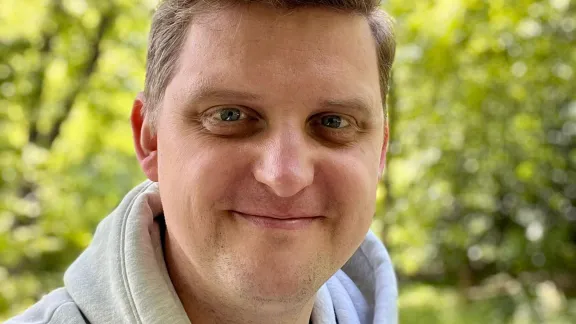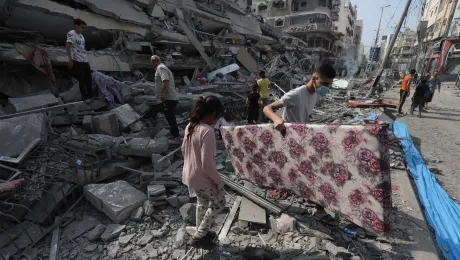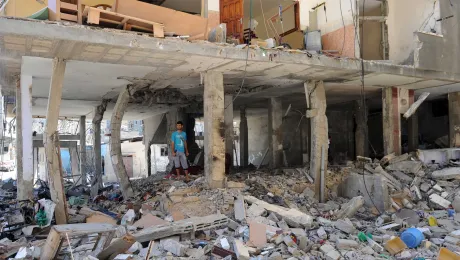
Karol Wilczinski. Photo: Private
Living as Neighbours: Karol Wilczinski, teacher, journalist, community organizer and founder of Salam Lab
(LWI) - “I was shocked by the fear mongering campaign,” says Polish journalist Karol Wilczinski, recalling how easily politicians in his country were able to spread hateful propaganda that demonized people on the move. “They painted refugees not only as terrorists, but also as rapists, pedophiles, the worst kind of people.”
Wilczinski studied first Greek, then Islamic philosophy, travelling to Munich in 2015 to work on a PhD which he completed three years later. In the meantime, he witnessed close up the beginnings of the so-called migration crisis in Europe, as several hundred thousand Syrians and others arrived in Germany after fleeing from war in their home countries.
Returning to Poland, he was increasingly alarmed by the rise in anti-immigrant rhetoric, fueled by ignorance and fear. “80 percent of people have strong convictions about Islam, but only 14 percent have ever met a Muslim,” he notes. Wilczinski shares his story of working to promote understanding and empathy in episode six of the ‘Living as Neighbours’ podcast, a joint initiative of the Lutheran World Federation and A World of Neighbours network.
Telling the other side of the story
Born and raised as a devout Catholic in a small village halfway between Warsaw and Kraków, Wilczinski became fascinated by the work of the great Greek philosophers like Plato and Socrates. In particular, he was keen to understand how, with the decline of the Greek and Roman empires, these ideas were revitalized and developed by Arabic scholars across the Islamic world in the Middle Ages.
After initially considering a career in academia, his experience of getting to know refugee families and the response to their plight made him want “to tell the other side of the story.” He says, “I felt helpless, because there were no counter voices among politicians in Poland” to challenge the propaganda of the populist Law and Justice party that was rapidly gaining ground among the electorate.
In 2016, Wilczinski began a blog on Islam and Arabic culture to combat prejudice and offer an alternative voice to the nationalist media outlets. “I did not know back then, but only about 3 or 4 percent of news stories ever represent the voices of refugees,” he reflects. “I wanted to write not only about the problems, but also about solutions to these crises.”
To promote empathy with refugees, we have to create cross-cultural and cross-generational alliances.
Polish journalist and educator Karol Wilczinski
Communication and media training continue to play a central role in his work to influence public opinion and create greater understanding of the issues faced by people on the move. In 2021 he co-founded Salam Lab, expanding the work of his blog to give voice to marginalized people, promote reliable reporting and build bridges between different national and religious communities. “All journalists are activists,” he says, “because you cannot be neutral on major human rights issues.”
At the same time, he helped to set up Grupa Granica, or Border Group, which has provided practical help to tens of thousands of people stranded on the border between Poland and Belorussia. As a philosophy teacher, he also works in a primary school teaching ethics to children and helping them to develop a sense of empathy that goes deeper than simply learning facts about people from different countries and cultures.
Despite often feeling alone and ineffective in his work to halt the tide of hate speech and populist policies that deny the rights of refugees, Wilczinski remains hopeful that the crisis will lead to greater understanding and solidarity with those fleeing from conflict and persecution. “People naturally want to feel part of a group and are afraid of anything outside of that,” he says. “But we have to create cross-cultural and cross-generational alliances – we must continue to work on that,” he concludes.
The Living as Neighbours podcast is a joint initiative of the Lutheran World Federation and A World of Neighbours network, which supports people helping migrants and refugees across the European continent. The project is supported by the German government through the Deutsche Gesellschaft für Internationale Zusammenarbeit. Each of the eight episodes features ordinary individuals doing extraordinary work to help the most vulnerable people stranded along some of Europe’s remotest borders.


